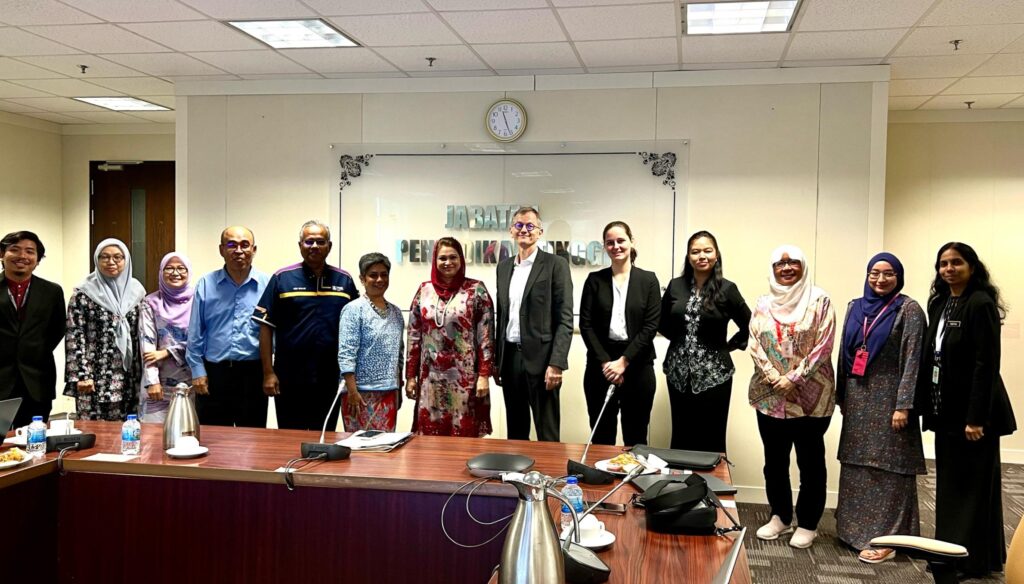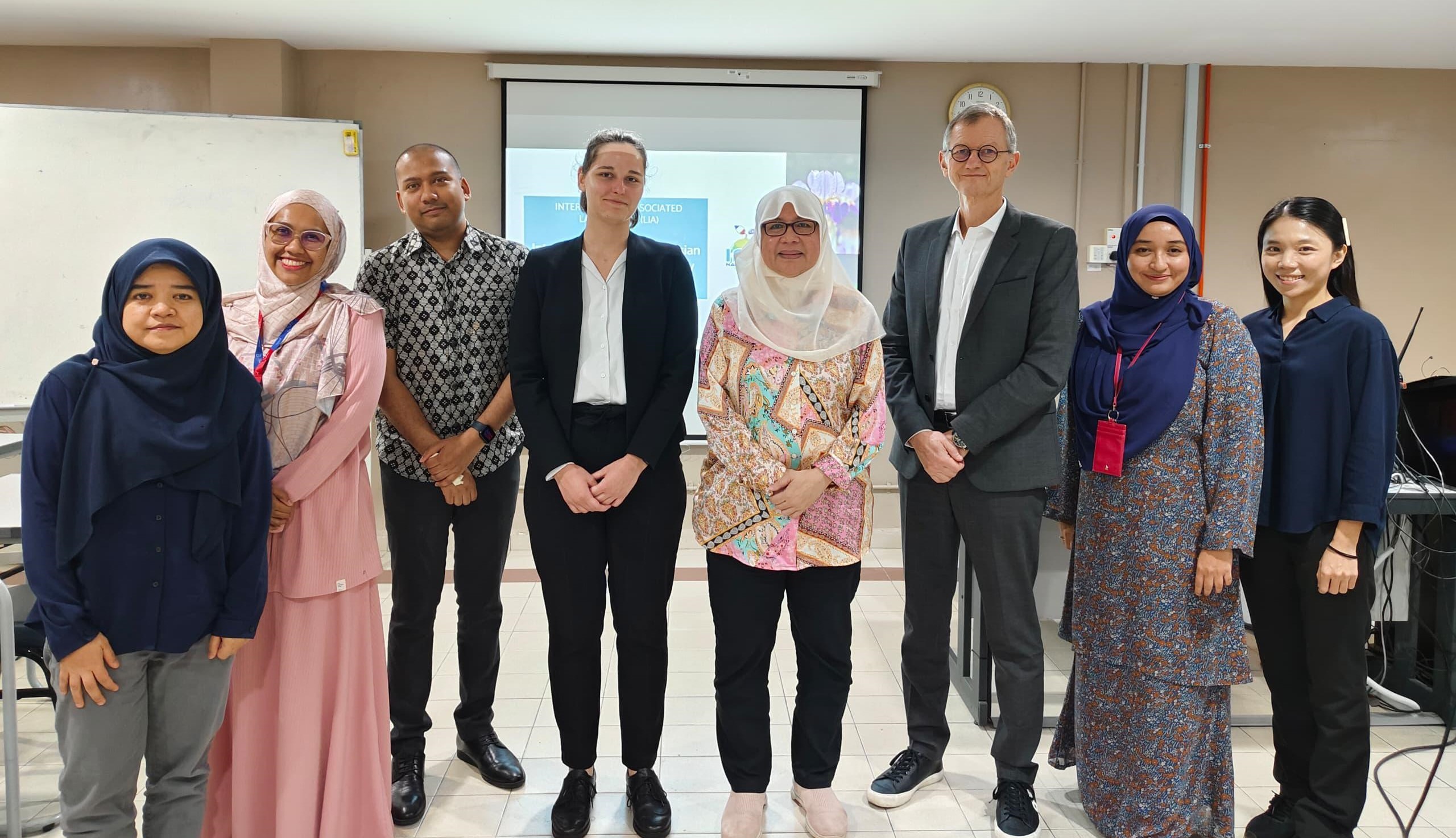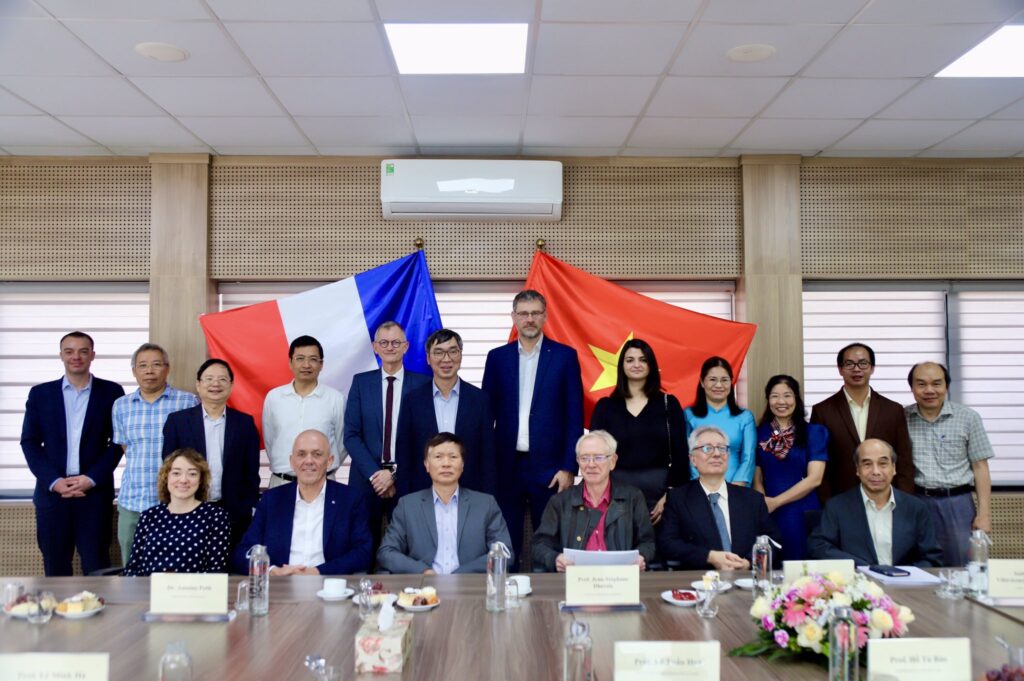![[Malaysia] Visit of the CNRS ASEAN Office in Malaysia](https://singapore.office.cnrs.fr/wp-content/uploads/2024/04/Photo-visite-Malaisie-260224-Copie-1080x675.jpeg)
[Malaysia] Visit of the CNRS ASEAN Office in Malaysia
[Malaysia] Visit of the CNRS ASEAN Office in Malaysia


CNRS Office in ASEAN during its visit to the Ministry of Higher Education in Malaysia, with the Deputy Director for Research Prof. Norzaini binti Azman. 26/02/2024. Credits: Ministry of Higher Education in Malaysia.
CNRS Office in ASEAN visiting the malaysian partners of the project IFM NatProLab. Kuala Lumpur, Malaysia, 26/02/2024 Credits: Project IFM NatProLab.
The CNRS Office in ASEAN also visited the malaysian partners of the international project IFM NatProLab in University Malaya, Prof. Khalijah Awang and her team, to discuss the future of this long-lasting collaboration.
Finally, the CNRS ASEAN Office met the scientific attache of the French Embassy in Malaysia.

![[Singapore] Visit of CNRS Physics in Singapore](https://singapore.office.cnrs.fr/wp-content/uploads/2024/02/Logo-CNRS-Physique-allonge.png)

![[Vietnam] Visit of Antoine Petit, Chairman and CEO of CNRS, in Vietnam](https://singapore.office.cnrs.fr/wp-content/uploads/2024/01/40-ans-coop-VAST-CNRS_2-1080x675.jpg)


![[Singapore & Thailand] Visit of Antoine Petit, CEO of CNRS, in Singapore and Bangkok](https://singapore.office.cnrs.fr/wp-content/uploads/2024/04/IRL-HealthDEEP-visite-Antoine-Petit-juillet-2023.jpg)
